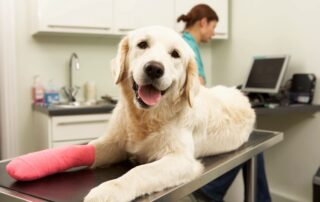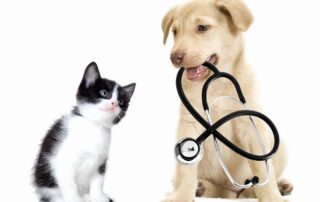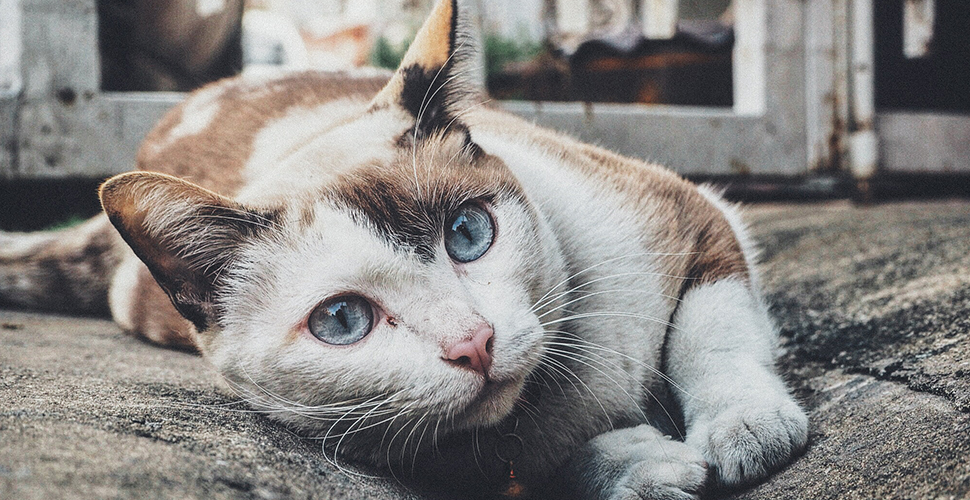The Best Veterinary Surgical Care
Experienced, compassionate surgical care
When your animal companion is about to have surgery, many questions can arise. Will the pet be safe under anesthesia? What is involved? Is the surgery truly necessary in the first place? At Smyrna’s Animal Care Center, you will find a comforting experience for both you and your pet that answers all of your questions about the surgical care received.
The most common surgeries many pets will face are spay and neuter procedures. These procedures are the only safe, permanent, totally effective methods of birth control for dogs and cats.
Here at Animal Care Center, Dr. Otto Williams also performs surgery to repair physical injuries to bones, muscles, ligaments, and tendons. Other types of surgery include soft-tissue surgery and neurosurgery. Soft-tissue surgeries include:
- Removal of skin disorders, cancers, and cysts
- Body cavity procedures
- Cardiovascular system repair
- GI (removal of foreign objects), urogenital and respiratory tract
The Importance of Spay and Neuter Procedures to Pet Longevity
The Humane Society of the United States reports that over 2.7 million cats and dogs are euthanized each year. These are not the offspring of homeless feral animals, as many people believe. They are mostly healthy cats and dogs that would have made great companions. Most are the offspring of cherished family pets, including many pure breeds.
A recent report in USA Today claims that spayed/neutered pets live the longest. According to that report, neutered male dogs live 18% longer and spayed female dogs live 23% longer. The reduced lifespan seen in unaltered pets is typically caused by the pets’ natural urge to roam outdoors and fight with other animals, and unfortunately they also can be hit by cars.
Thanks to his years of experience, veterinarian Dr. Otto Williams knows exactly what to look for when it comes to surgery. He’ll explain why your pet needs surgery and what it entails, and he’ll answer your questions about the procedure. Just as he has done for so many pet owners and their pets from all over Smyrna, Georgia and the surrounding communities.
Choose Animal Care Center for compassionate, experienced and expert surgical care for your pets, including spaying. Call us at 770.438.2694 or use our convenient online Request an Appointment form to schedule your visit.
Our surgical care patients come to us from Austell, Cumberland, Mableton, Marietta and Smyrna.

Experienced Surgical Care
When a human medical doctor performs surgery, advanced training is required. No such requirement exists in veterinary medicine. Because of this, it is important to find a veterinarian who has continued to develop surgical skills upon completion of the veterinarian education. Remember that more advanced veterinary surgeons may charge higher fees to reflect this advanced training and ongoing education. The experience is worth the cost when it keeps your companion safe under the anesthesia and the scalpel.
Your veterinary technician and anesthetist at the Animal Care Center assist your animal’s doctor throughout the surgery; their skills are also vitally important in your pet’s operation and recovery. Devices that require monitoring include pulse oximeter, blood pressure, and EKG during procedures. Technicians may also need to take blood samples, perform intubation, and run laboratory panels.
Sterility and Equipment Quality
Complications in animal surgery often result from surgical instruments that were not properly sterilized. You need not fear this occurring at the Animal Care Center of Smyrna. Another potential problem in lesser quality operating centers arises from surgical instruments of poor quality. These result in more trauma due to poor tissue handling. Fatal hemorrhage is often caused by inexpensive instruments and cheap sutures.
Quality care at our Animal Care Center reduces the chances of such fatal results.
Spaying and Neutering
According to the ASPCA, spaying and neutering come with a wide array of benefits, medical and otherwise. For example, when you have your pet spayed or neutered, you help control the crisis of pet homelessness. Quality surgical care is key to a healthy operation.
Spaying is the sterilization of a female animal. The ASPCA says that spaying will let your female pet lead a life that is longer and healthier. It helps to prevent breast tumors and uterine infections. For the best protection against these diseases, have the operation performed before the female goes into her first heat. Spaying your pet also means she will not go into heat. If your pet has ever gone into heat, you know that it is a frequent event in the breeding season, and a loud one.
Neutering is the removal of a male dog’s testicles. This procedure prevents some prostate problems as well as testicular cancer. Males are also less likely to roam far away from home when neutered, as he will not be driven to escape to find a mate. Your male pet also can be better behaved, less likely to mark his territory around the house and mount various things like people, animals, and inanimate objects.
A couple of misconceptions surround spaying and neutering. First, these operations are not quick behavioral fixes. While reduced testosterone can lead to better behavior and reduce the odds of poor behavior like indoor marking, a dog’s behavior depends on its particular personality, history, and physiology. Second, this operation does not result in an overweight pet.
Spaying and neutering are not the only operations performed by the skilled veterinary staff of Smyrna’s Animal Care Center. Surgeries fall into three loose categories: soft tissue surgery, neurosurgery, and orthopedic surgery. Remember to ask questions to ensure a calm, confident presence for your anxious pet to rely on before going ahead with surgical care.





